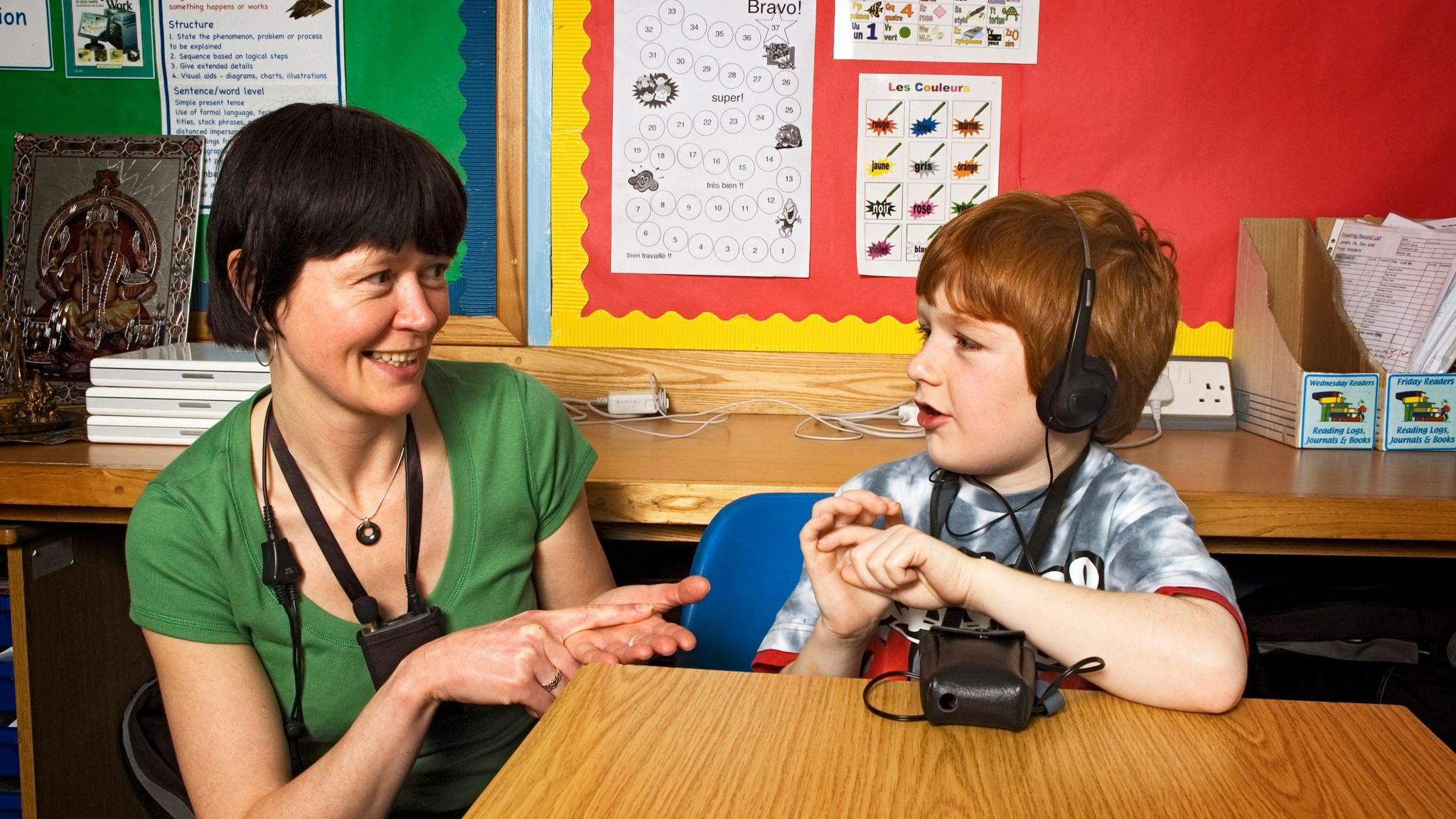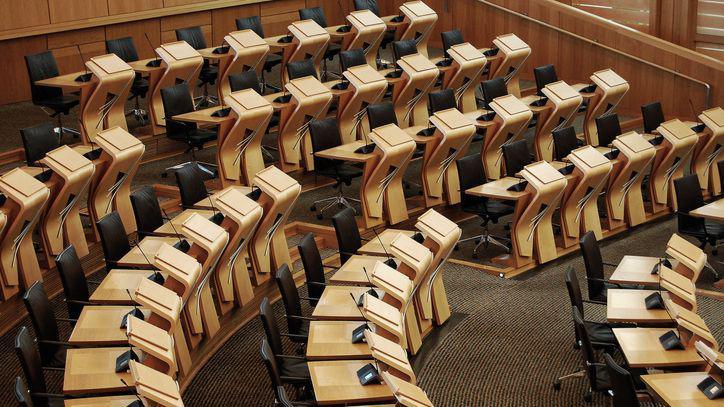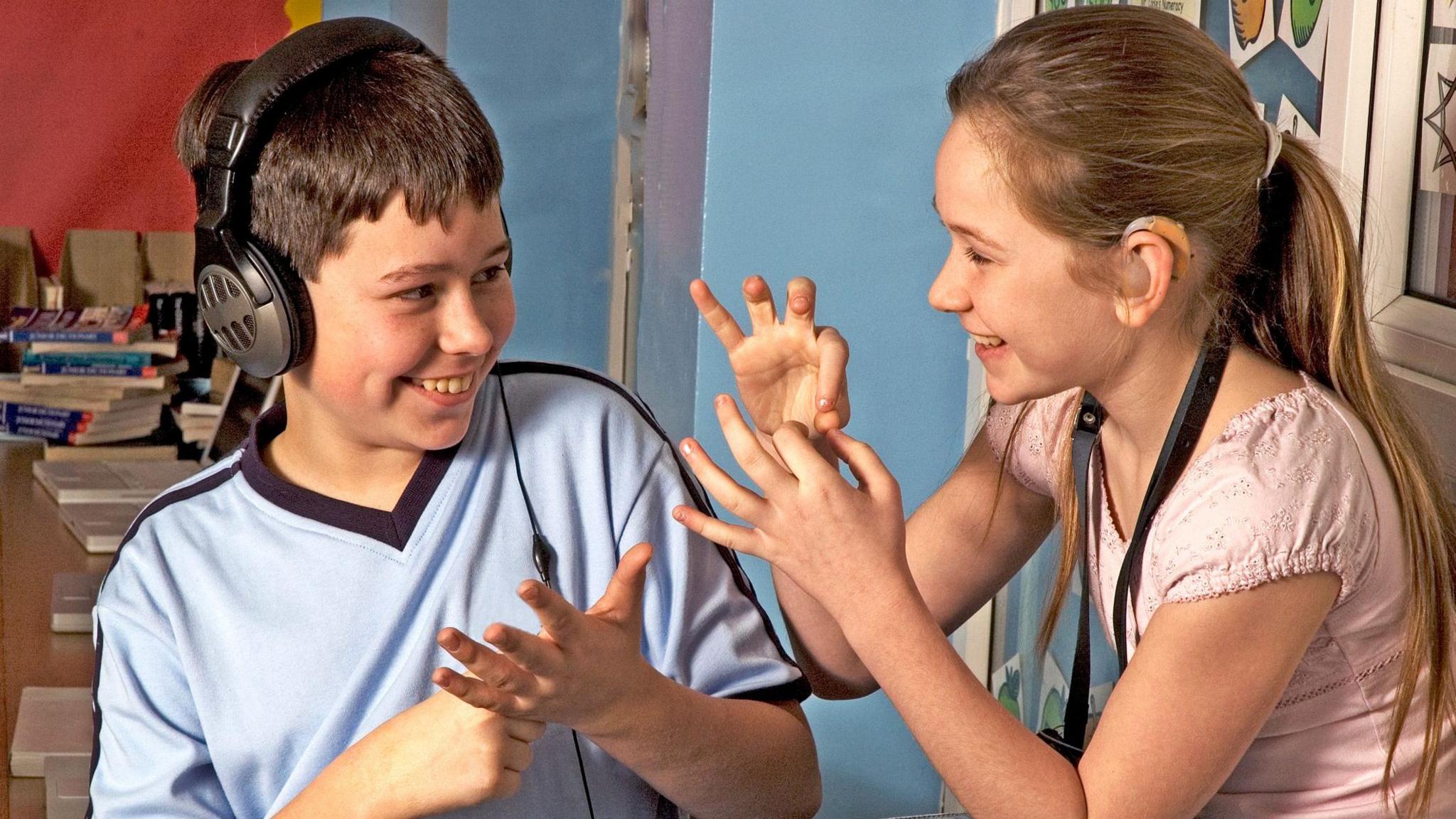Concern about young people's 'lack of access' to BSL in Scotland

A report said that deaf children and young people still faced barriers in accessing their native language - especially in school
- Published
More needs to be done to support young people in Scotland when it comes to sign language.
That's according a committee which is part of the Scottish Parliament at Holyrood.
A sign language law was passed in Scotland 10 years ago which the committee said had "brought significant benefits" to deaf people.
But the members of the Scottish Parliament (MSPs) have also stressed the need to improve the situation in schools.
A Scottish Government spokesperson said: "Our six-year BSL National Plan sets out the actions we will take to make Scotland the best place in the world for BSL signers to live, work, learn and visit."
- Published23 September 2023
- Published15 June 2023
- Published5 hours ago
The British Sign Language (Scotland) Act was passed in 2015, which gave the Scottish Government and councils the duty to come up with plans to widen access to the language.
The Holyrood committee was sent to see how successful it had been in doing this.
The report said that MSPs are "concerned" about a lack of access for young people, as well as a lack of qualified British Sign Language (BSL) interpreters in Scotland.
The report added: "The committee is particularly concerned about the experiences of deaf children and young people, especially in education and early years provision, and the barriers they face in accessing their native language.
"The importance of deaf role models, qualified teachers, and inclusive learning environments cannot be overstated."
What will be done to improve access to BSL in Scotland?

This is where MSPs from the Scottish Parliament come to debate laws and make decisions
It said that some improvements had taken place since the law was introduced. These include
increased visibility of the language
improved access to services
greater empowerment of the deaf community
The report has asked the government to show plans about how it will increase the number of teachers who can use BSL and what money it will spend to do this.
It's also calling for BSL to be treated with the same importance as other minority languages like Gaelic.

Strictly and Eastenders star Rose Ayling Ellis was one of those who campaigned to get the UK government to make BSL to be made an official language with legal status
A Scottish Government spokesperson said: "Everyone should be able to access services equitably and without barriers, including British Sign Language (BSL) users.
"Ensuring access and opportunity to learn BSL, particularly for deaf children and their families, is a key focus of the plan and we are providing over £100,000 in 2025-26 to the National Deaf Children's society to support the delivery of improved social, educational and health outcomes for deaf children, young people and their families.
What's sign language provision like in other parts of the UK?

The UK government's BSL Act requires public bodies to consider the needs of BSL users - but doesn't cover Northern Ireland
In April 2022 the UK government introduced the British Sign Language (BSL) Act which applies to England, Scotland and Wales.
It helps ensure all public services and information are accessible to Deaf people who use BSL.
In Northern Ireland, BSL and Irish Sign Language (ISL) are both recognised.
A Northern Ireland Sign Language Bill was introduced in February 2025 but it's still being considered by politicians and so hasn't yet been passed into law.
